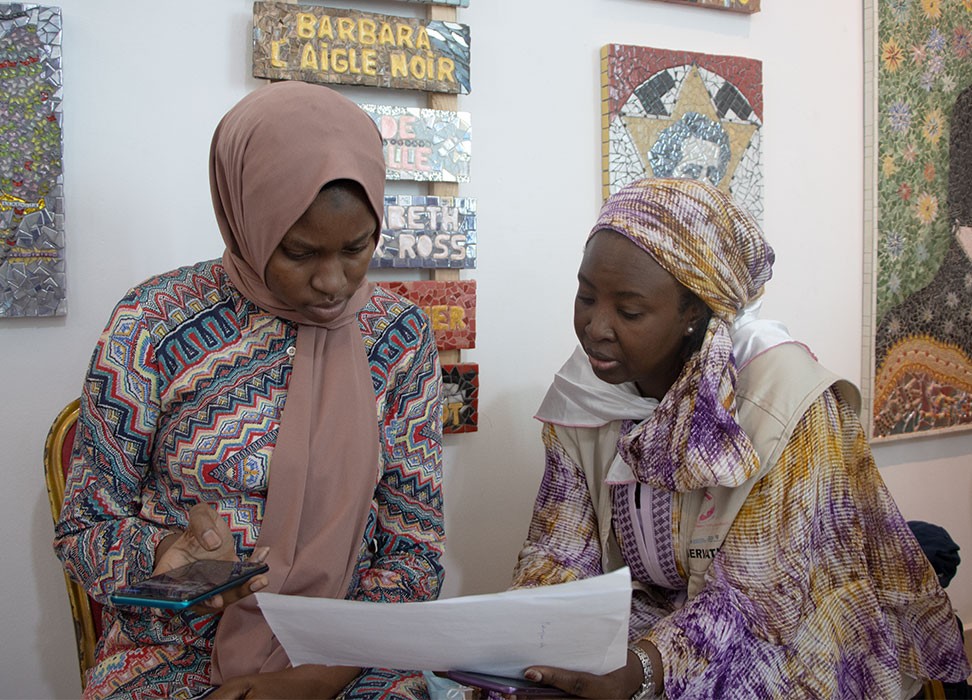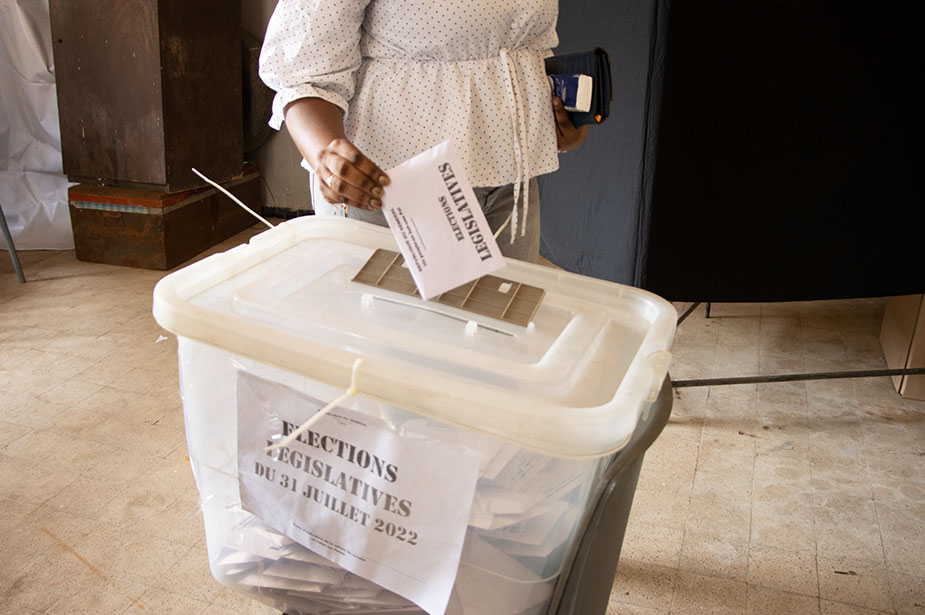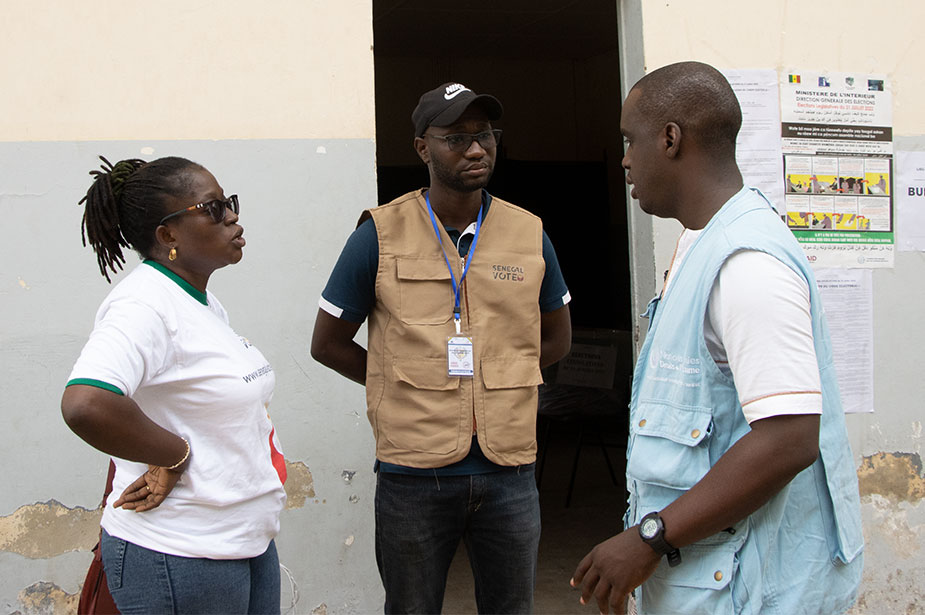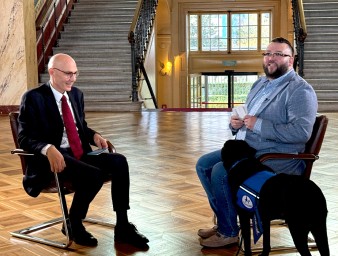Senegal: Civil society and human right defenders mobilize for a transparent election
15 September 2022

“As a human rights defender, it is important that we can help mobilise young people to become more involved in defending their civil and political rights,” said Jaly Badiane, a Senegalese human rights activist and blogger.
Badiane was part of Senegal Vote, a “civi-tech” initiative that combined citizen engagement and the use of ICT to encourage participation in the country’s recent election especially among younger people. The initiative was led by Wa Mbedmi (“those in the street” in Wolof”) a non-profit entity created to contribute to the emergence of a participatory citizenship.
"As an associative and non-partisan entity, the Wa Mbedmi Association, which, works daily to promote the emergence of a citizen who is interested in public life, challenges those in power and engages in collaborative and community dynamics,” Badiane said. "The goal of our citizen initiative is to make all relevant electoral information understandable, in a language that is accessible to a large number of citizen voters.”
Indeed, in order to guarantee the fairness of the 2022 legislative election Senegal, human rights defenders, as well as members of civil society groups worked tirelessly to ensure free, fair, and transparent elections. One of those was the Women's Watch Platform for Peace and Security called Ëtu Jamm (Peace Space in Wolof), an election monitoring group composed of 50 Senegalese and pan-African women's civil society organisations, and coordinated by the NGO Femmes Africa Solidarité (FAS).

At the Demba Diop stadium voting centre in Dakar, a voter puts her ballot paper in a box at polling station number 1, Senegal, Dakar. © OHCHR WARO - Habibou Dia
The Ëtu Jamm platform monitored and observed the election from 30 July through 1 August. According to Coumba Fall Venn, Director of the Pan African Centre for Gender, Peace and Development and Regional Director of Programmes with FAS, the platform played a pioneering role for election observation.
"The Platform has positioned itself as an early warning and rapid response mechanism to possible unrest or other forms of violence during electoral processes,” she said. “We were inspired by the United Nations Security Council Resolution 1325 and the African Heads of State Solemn Declaration on Gender Equality in Africa for the effective participation of women in peace processes, conflict prevention and peace building to set it up.”
Initiatives such as Ëtu Jamm and Senegal Vote were projects supported by the UN Human Rights Office Regional Office for West Africa.
"The Office has supported the platform of women's organisations to strengthen the capacities of election observers, both men and women, by organising training on human rights, gender and elections,” said Mouhamadou Sow, a programme analyst for the Office. “OHCHR provided two training sessions over two days to a group of over 100 male and female observers from different parts of the country who were deployed on behalf of Ëtu Jamm to monitor parliamentary elections.”

Jaly Badiane (left) of the Senegal Vote initiative and Mouhamadou Sow (right) from OHCHR WARO talk to Emmanuel Baloucoune (middle), a volunteer in charge of election observation at the Demba Diop polling centre. © OHCHR WARO - Habibou Dia.
Senegal Vote undertook online monitoring before and during the elections. Mame Diarra Bousso Kane, explained that young people through the programme were given some tools and content that they could use online before election day.
"Beyond the online monitoring and awareness campaigns, we have deployed hundreds of volunteer observers, mostly in the 14 regions of Senegal,” Kane said. “These volunteers provided us with regular feedback on the conduct of the election with images and videos that we checked before publishing.”
During the elections, Ëtu Jamm deployed 60 women observers and 20 journalists, who monitored the elections in real time at 350 polling stations in Dakar and in the regions. At the polling stations, many women sought out female monitors for guidance about the process and received reassurance that they had every right to enter the polling stations to cast their votes. The interventions of Ëtu Jamm and Senegal Vote contributed to an Election Day with few incidents of violence both on- and offline.
“Etu Jamm contributed to a calm atmosphere around 96 percent of the election offices observed and the voting operations, which enabled voting to continue normally in the polling places visited and ultimately lead to transparent and credible election results without major appeals,” Venn said.


